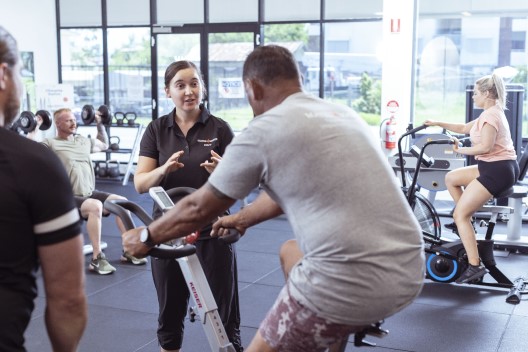
A message from Mates4Mates
Next week is Brain Injury Awareness Week (19–25 August) and Mates4Mates is supporting current and ex-serving military personnel and families to learn about, and recover from, the effects of a brain injury with the help of our trusted clinicians.
Mates4Mates Clinical Lead of Psychological Services and psychologist Jonathan Moscrop explains brain injuries can affect an individual across multiple domains, including physical changes, cognitive changes and psychological changes.
‘Brain injury is an invisible disability, as there is often no physical evidence of the injury. Despite not being seen, its impact is felt every day, with 28.1% of Australian Defence Force personnel having experienced at least one mild traumatic brain injury (mTBI) in their lifetime,’ Mr Moscrop said.
‘Physical impacts of a brain injury include headaches, fatigue, and visual or auditory sensitivity. Cognitive changes may include deficits in memory, attention, concentration and executive functioning skills. Finally, psychological impacts of brain injuries include changes in an individual’s mood, personality, and behaviour.’
Brain injuries can also have long-term mental health effects for family members and loved ones of those who have been injured, as changes to personality and social skills of someone you love can be confronting and confusing without support.
‘Mental health support is crucial to brain injury recovery, to understand the condition, understand the symptoms each individual feels and their impact, and working through the emotions that come with changes in a person’s sense of self,’ Mr Moscrop said.
‘It is important that mental health support is also available to the family members and loved ones that often play a key role in supporting those with a brain injury, ensuring they are also maintaining their own health and wellbeing.’
Mates4Mates offers veterans and families access to psychologists, counsellors and social workers who can provide support in working through the effects of brain injury.
Mates4Mates also offers the Defence community support through our exercise physiologists and physiotherapists, who can assist those who have experienced a brain injury to cope with the physical health changes that come with their injury, as well as maintain movement and activity to benefit the individual’s overall wellbeing.
Working with a dedicated clinician can help affected veterans, and their family members, by raising their awareness of how brain injuries affect different sections of the brain and the techniques available to help support the recovery.
Mates4Mates clinicians can be accessed both in centre and via telehealth and are here to help break down the barriers of accessing support for mental and physical health conditions.
Mates4Mates clinical services are available to all veterans and family members registered with us, either in-person at our centres across Queensland, Tasmania and the Northern Territory, or online via telehealth. To find out more about how Mates4Mates can help you to reconnect and recover, visit mates4mates.org.